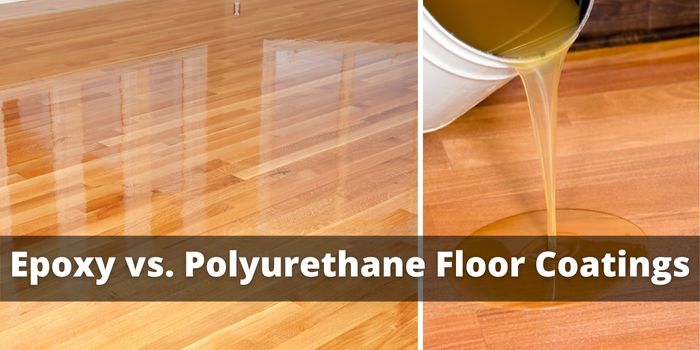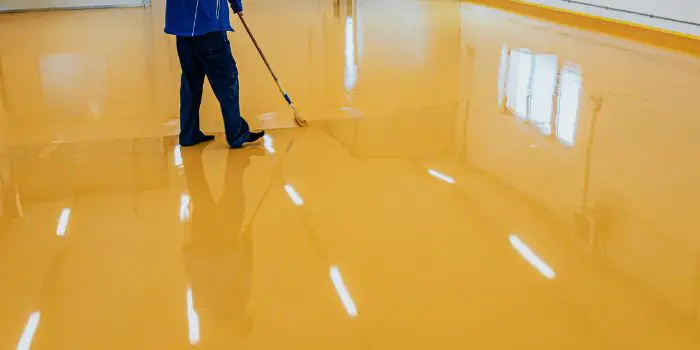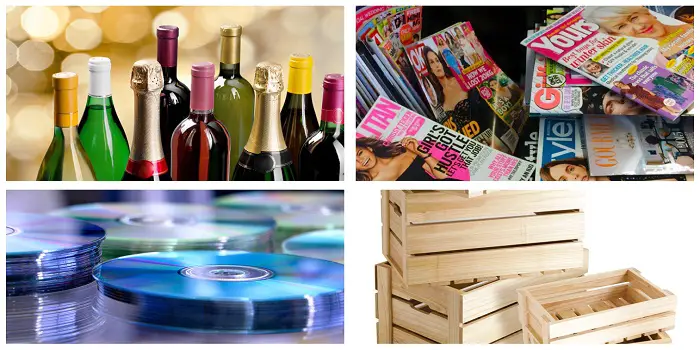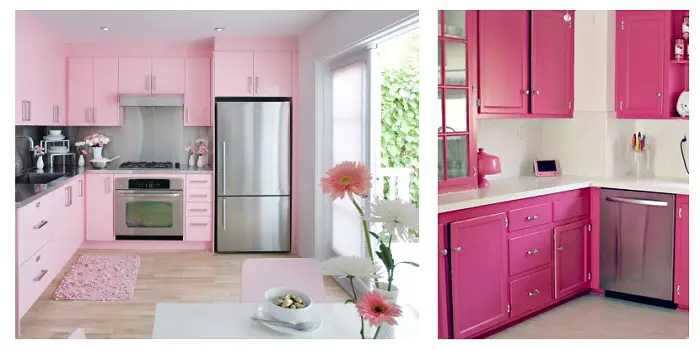
When it comes to flooring, there are a lot of options to choose from. You can go with hardwood, laminate, tile, or even vinyl.
But what if you want something a little different? What if you want to go with plywood?
Plywood is a great option because it’s affordable and durable, but you will need to coat it with a proper sealing agent to make it durable and long-lasting.
Well, you may be wondering if you should coat your plywood floors with epoxy or polyurethane floor finishes.
So, which one is better? Let’s find out.
What's Here in the Article:
Epoxy vs. Polyurethane Floor Coatings
There are a few things to consider when choosing between an epoxy coating or polyurethane for your plywood floors.
The main difference between the two is that epoxy coatings are thinner and provide less protection than polyurethane.
However, epoxy coatings are more durable and can withstand more wear and tear.
Polyurethane, on the other hand, is thicker and provides more protection but is not as durable.
The Feel
Epoxy coatings have a smooth, glass-like finish, while polyurethane has a more matte finish.
If you are looking for a more polished look, epoxy is the way to go. However, polyurethane might be a better option if you prefer a more natural look.
The Color
Epoxy coatings are available in a variety of colors, while polyurethane is usually clear or amber.
If you want to add color to your floors, epoxy is the better option. However, if you want your floors to maintain a natural wood look, polyurethane is a better choice.
The Slipperiness
Epoxy coatings are more slippery than polyurethane.
So, if you live in an area with a lot of rain or snow, you might want to consider polyurethane for your floors.
The Cost
Another thing to consider is the cost. Epoxy coatings are typically more expensive than polyurethane, but they will last longer and require less maintenance.
Polyurethane is less expensive but will need to be replaced more often.
Ultimately, the best option for you will depend on your budget and your needs. If you need a durable floor that can withstand a lot of wear and tear, epoxy is the better option.
If you’re looking for a less expensive option that will still provide some protection, polyurethane is a good choice.
Can I top-coat epoxy with polyurethane?
Top-coating epoxy with polyurethane is possible and will provide a layer of protection against wear and tear. Particularly, the water-based polyurethane does not cause any issues when used over epoxy resin coatings.
It’s however, important to note that polyurethane will not adhere well to an epoxy coating that has been exposed to sunlight. So, if you’re looking to top coat your epoxy floors with polyurethane, it’s best to do so in an area that is not exposed to sunlight.

Epoxy or Polyurethane – Which Provides Heat and Cold Tolerance?
When choosing a coating for plywood floors, it’s important to consider the climate in which the floor will be used.
If the floor is exposed to extreme temperatures, epoxy is a better option because it can withstand higher temperatures without yellowing or cracking.
Polyurethane is not as tolerant to heat and cold and can yellow and crack in extreme temperatures.
So, if you’re looking for a coating that can withstand extreme temperatures, epoxy is the better choice. But if you’re looking for a less expensive option that can still provide some protection against temperature changes, polyurethane is a good choice.
Is Epoxy or Polyurethane a Better Option for My Garage Floors?
Garage floors are exposed to a lot of wear and tear, so it’s important to choose a coating that is durable and can withstand a lot of traffic.
Epoxy is a better choice for garage floors because it is more durable and can withstand more wear and tear. Polyurethane on the flip side is less durable and will need to be replaced more often.
So, if you’re looking for a coating for your garage floor that will last longer and require less maintenance, epoxy is the better choice. But for a less expensive option, polyurethane is a good choice.
There are some newer polyurethane products on the market that tend to perform better than epoxies. But the fact is they take much longer to install and completely cure. Plus, they are also more expensive. For most people, therefore, the added durability of epoxy makes it the better choice for their plywood floors.
What epoxy do professionals use for garage floors?
The type of epoxy that professionals use for garage floors is a two-part system that is mixed together and then applied to the floor. This type of epoxy is more durable and can withstand more wear and tear than a one-part.
It’s important to note that this type of epoxy takes longer to cure and is more expensive than a one-part system. So, a two-part system is the best option if you’re looking for a durable and long-lasting epoxy coating for your garage floor.
When it comes to choosing the brand, there are a variety of different options on the market. Some of the more popular brands include Rust-Oleum, Quikrete, and Behr.
What polyurethane brand do professionals use for garage floors?
The type of polyurethane that professionals use for garage floors is water-based polyurethane. It is more durable and can withstand more wear and tear than oil-based polyurethane.
For choosing the brand, it is best to pick from the most popular ones, like Minwax, Rust-Oleum, and Varathane. There are many other good brands out there, so it is important to get advice from people who have used them before in order to make the best decision.
Final thoughts
Ultimately, the best option for you will depend on your budget and your needs. If you need a durable floor that can withstand a lot of wear and tear, epoxy is the better option.
If you’re looking for a less expensive option that will still provide some protection, polyurethane is a good choice.
Polyurethane is less expensive but will need to be replaced more often.
Epoxy coatings are generally more expensive than polyurethane, but they tend to endure longer and need less upkeep.
Share the post "Epoxy Coating or Polyurethane on Plywood Floors – What’s a Better Option?"

Douglas Becker (aka Painter Doug) has over twenty years of experience as a painter in Adkins, Texas. At present, he resides in Florida with his family.
From painting multi-storeyed houses, condos, and apartments to large commercial buildings and small offices, he had served various customers in areas not only in Adkins but also in Southwest Florida, Sarasota, Naples, and many more. To know more about him check here.




